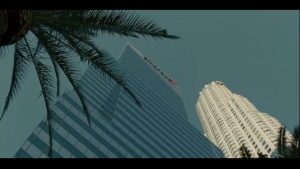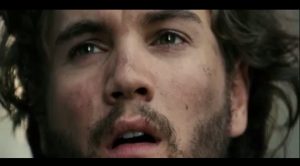 In the film Into The Wild, Christopher McCandles, adopts the name “Alex Supertramp” to fully reject the society he grew up in, as he literally goes “Into the Wild”. For those who haven’t watched the film or read the book, I highly recommend it; based on a true story, we follow Christopher’s journey to the wildest reaches of Alaska as he abandons his previous life to obtain a profound understanding of his life and the world around him. After reading Rousseau’s “Second Discourse On Inequality”, I can’t help but notice a similarity between the two books. Rousseau, just like Alex (we will call him by that name from now on, as he preferred to go by it throughout his journey) believes that society is heading on the wrong direction. They both dream of simpler times, where humans and nature were one with each other, they dream of a man that likes to help others out of compassion, they dream of a man that is separated from society, and most importantly, knows and is at peace with himself. Not only that, but there seems to be similarities with both of our character’s, they both left their hometown to reflect on life for a long time: Alexander left for two years, and Rousseau left for 20 (based on Crawford’s lecture). Two times ten equals twenty, you see, similar.
In the film Into The Wild, Christopher McCandles, adopts the name “Alex Supertramp” to fully reject the society he grew up in, as he literally goes “Into the Wild”. For those who haven’t watched the film or read the book, I highly recommend it; based on a true story, we follow Christopher’s journey to the wildest reaches of Alaska as he abandons his previous life to obtain a profound understanding of his life and the world around him. After reading Rousseau’s “Second Discourse On Inequality”, I can’t help but notice a similarity between the two books. Rousseau, just like Alex (we will call him by that name from now on, as he preferred to go by it throughout his journey) believes that society is heading on the wrong direction. They both dream of simpler times, where humans and nature were one with each other, they dream of a man that likes to help others out of compassion, they dream of a man that is separated from society, and most importantly, knows and is at peace with himself. Not only that, but there seems to be similarities with both of our character’s, they both left their hometown to reflect on life for a long time: Alexander left for two years, and Rousseau left for 20 (based on Crawford’s lecture). Two times ten equals twenty, you see, similar.
The journey of Alexander Supertramp can be seen as an illustration of the consequences and the evolution of a man that is leaving civilization to become a “natural man”. Although the film speaks mostly about the values of being true and free, it speaks too about the deprivation of human nature to society, dedicating whole sequences to the repulsive facets of modern civilization. However, what I believe is one of the most interesting features of this film it’s the way we can approach it almost as an allegorization of Rousseau’s ideas on the development of man, from civilization to the state of nature.
When Alexander Supertramp visits the city after travelling almost a year on his own, Sean Penn (yes, Sean Penn is the director of this film) decides to present us to the city with a montage of low-angle shots  of the city’s buildings, exagerating the size of what is (according to Rousseau) the source of all evil.
of the city’s buildings, exagerating the size of what is (according to Rousseau) the source of all evil.  We can’t help but sympathize with Alex’s character as he tries to assimilate, after being more than a year away from civilization, the sheer size of these iron giants, built through, and by, the inequality amongst men. Alex’s dirty appearance alienaties him from the orderly architecture of the city, the straight lines of the buildings slanting towards the center, encapsulating Alex in a small prison where “amour propre” rules all. He is made to walk alone in this foreign land he is no longer accustomed to. Penn’s use of subject-centered wide shots isolate our subject; his voice over is caught off and replaced with the chaotic sounds of city life; Alex hasn’t been with as many people as he is now, yet he clearly has never felt more alone. Man’s loss for natural compassion seen as Alex asks for the time, and a man dressed in a suit, flinches and reevaluates doing so. Here we see more of an illustration of Hobbe’s natural state ruled by fear, one of the many reasons why Rousseau’s philosophy sound more appealing. When it comes to this scene in relation to Rousseau, I believe, he felt the same way when he was looking at his society, alone, almost paranoid of becoming like one of them, self-isolating himself. He has seen the beauty of man in his natural state, yet he feels extremely conflicted by the fact that “man was born free, but he is everywhere in chains”.
We can’t help but sympathize with Alex’s character as he tries to assimilate, after being more than a year away from civilization, the sheer size of these iron giants, built through, and by, the inequality amongst men. Alex’s dirty appearance alienaties him from the orderly architecture of the city, the straight lines of the buildings slanting towards the center, encapsulating Alex in a small prison where “amour propre” rules all. He is made to walk alone in this foreign land he is no longer accustomed to. Penn’s use of subject-centered wide shots isolate our subject; his voice over is caught off and replaced with the chaotic sounds of city life; Alex hasn’t been with as many people as he is now, yet he clearly has never felt more alone. Man’s loss for natural compassion seen as Alex asks for the time, and a man dressed in a suit, flinches and reevaluates doing so. Here we see more of an illustration of Hobbe’s natural state ruled by fear, one of the many reasons why Rousseau’s philosophy sound more appealing. When it comes to this scene in relation to Rousseau, I believe, he felt the same way when he was looking at his society, alone, almost paranoid of becoming like one of them, self-isolating himself. He has seen the beauty of man in his natural state, yet he feels extremely conflicted by the fact that “man was born free, but he is everywhere in chains”.
I’m getting too excited by this post, so I’m gonna cut down on my film analysis and jump straight ahead into the conclusion. ***SPOILERS AHEAD*** You have been warned, there are spoilers ahead, do not read any further, it’s a great film, with a great ending, don’t let me ruin it for you. I SAID STOP READING, FOR REALZ. PLZ Ok, so if you have seen the film you know that Alex’s journey ends with his death, at the very end he realizes one of the most, if not the most, beautiful messages from the film: “Love is only real when shared”. His death, exemplifies that in the end, society has developed for a reason. One of the things that makes us different to animals, is our capability for self-improvement, our ability to alter the environment to our needs, and Alex needed this aspect from society to survive. One thing lead to another and he dies, reminding us that society is there for a reason and we need it.
The point I think I am making with the film, is that Alex’s happiest moments (those that lasted the longest at least) were not in Alaska, but the journey there. Alex, still had some sort of contact with society, but it was a way of living similar to the one that Rousseau defends and finds as the ideal one: nascent society. In his journey, he had both of the most important factors that make up man in the state of nature: pity and perfectibility. Without the need to take care of property, Alex travels, meets and helps people, fulfilling himself spiritually, furthermore, improving. In conclusion (I am running out of space), “Into the Wild”, provides an illustration of three stages in human development through the journey of one person, accentuating Rousseau’s poetic and romantic approach to the beauty of man in his state of nature.
In his journey, he had both of the most important factors that make up man in the state of nature: pity and perfectibility. Without the need to take care of property, Alex travels, meets and helps people, fulfilling himself spiritually, furthermore, improving. In conclusion (I am running out of space), “Into the Wild”, provides an illustration of three stages in human development through the journey of one person, accentuating Rousseau’s poetic and romantic approach to the beauty of man in his state of nature.
Honest Bruno (speaks honestly): I could have made an entire essay on the subject, but like…maybe later, this is just a blog post. Sorry for the jumps between argument and argument…heh.
